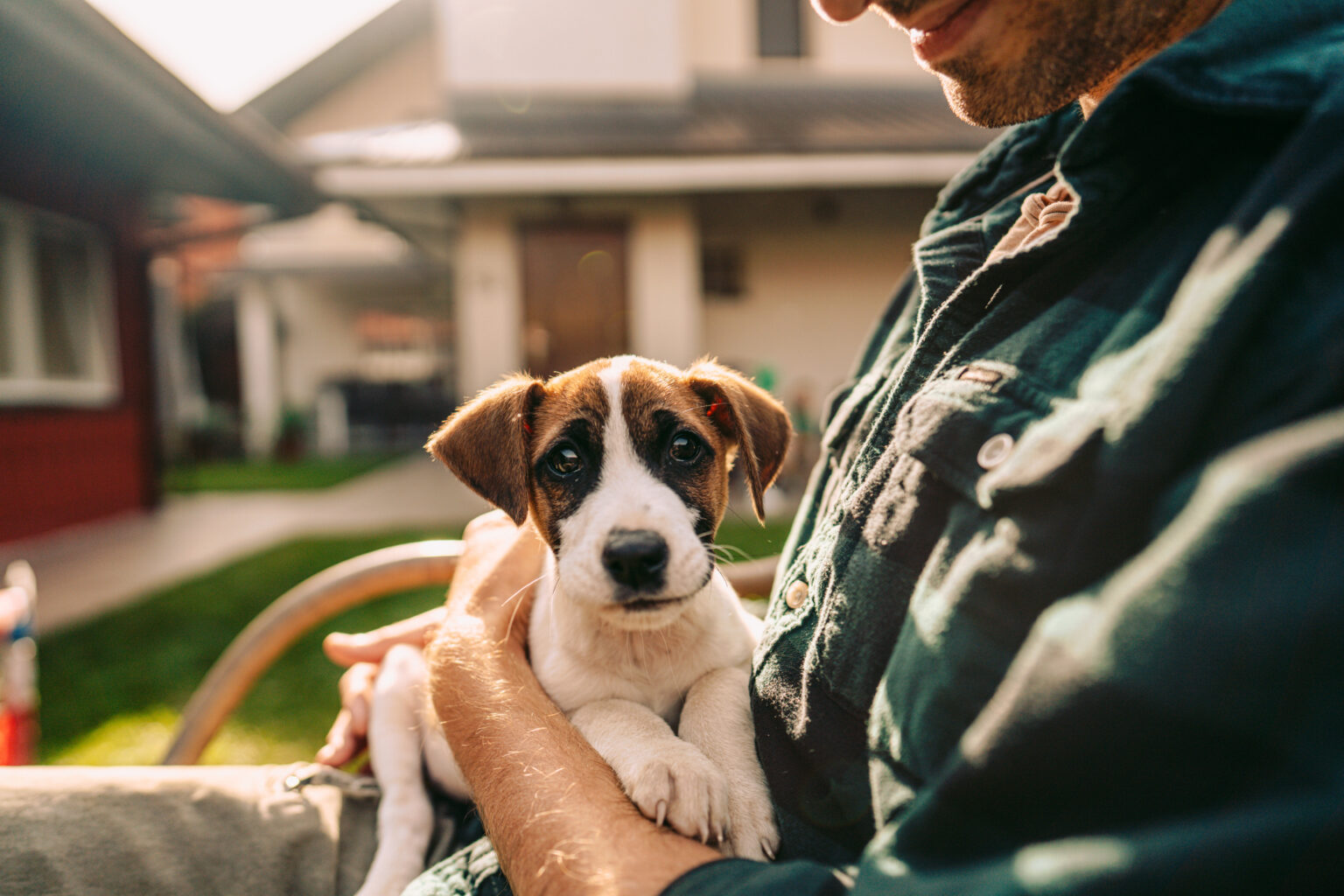With more of you working from home and cute puppy photos all over your social media feeds, we can’t blame you for thinking it might be the right time for a new addition to the family. When looking for a puppy, there are two main routes: buying or adopting. Our in-house vet shares some knowledge about how to make an informed decision.
What to look for when buying a puppy?
Most good breeders ask for a reasonably high price for their pups because they provide top-quality care before selling them – including mating, birthing, and feeding the pups and their mum. But breed popularity, their pedigree, and the breeder’s reputation also play a part. Veterinary care may also be needed, including IVF and cesarean sections, if the mother can’t give birth naturally (such as most British Bulldogs). Vaccinations and microchipping should also be done before puppies are sold – be extra careful if the puppy is being advertised with a passport it may have been imported.
If you’re looking to buy from a puppy breeder, it’s important to ask the right questions. And remember: if the price seems too good to be true, it probably is.
How can you tell if a seller is running a puppy farm?
The government has urged potential pet parents to look out for warning signs that third parties are selling puppies from backyard breeders and puppy farms. In these cases, dogs may be continuously bred in unhygienic conditions where there is little concern for the mum’s welfare, in-breeding and the puppies’ long-term health.
We’re supporting DEFRA’s #petfished campaign, to raise awareness of deceitful sellers who mistreat animals to line their pockets. Learn how to S.P.O.T. the signs of a deceitful seller:
S for seller
Research the seller – put their details into a search engine and avoid people who have multiple adverts or seem suspicious.
P for parent
Make sure you see puppies and kittens in their homes with their mothers. The seller must have bred the mother themselves and be the owner, and the sale should happen at their home premise where the litter is being raised by the mother.
O for old enough
Puppies and kittens need to be at least 8 weeks old before you take them home.
T for treatment
Ask to see the pet’s health records and avoid sellers who can’t provide them.
Lucy’s Law
On 6 April 2020, a ban on commercial third party sales of puppies and kittens came into force in England. The law requires anyone looking to get a new puppy or kitten under six months old to go directly to a breeder or a rescue centre. Licensed breeders must show litters interacting with their mother in their birthplace. If a business is found selling puppies or kittens without a license, they could receive an unlimited fine or a prison sentence of up to six months.
There are some breeders who don’t have a license. They’re often known as ‘hobby breeders’ who breed less than three litters a year and do not make a profit on their pup sales. Make sure you use the S.P.O.T signs to work out if they’re a genuine breeder.
It’s hard to say no to a puppy – sometimes even more so when they come from a puppy farm. But you should walk away and report these adverts to an animal welfare charity or your local authority as these purchases are unfortunately driving the puppy farm industry. It’s vital you research the seller before you get in contact. If you suspect anything, you should walk away and report the seller.
So, is it better to adopt a puppy?
Puppy adoption means providing a forever home to a puppy from rescue organisations. These organisations will also feed, nurse, and care for abandoned, surrendered, or stray dogs until they are ready to be rehomed.
How to adopt a rescue puppy
One of the biggest misconceptions is that rescue centres only care for older dogs. This is not true, as many shelters receive pregnant dogs and accidental litters that are also in need of rehoming. If you are prepared to wait, most rescues will have a waiting list for puppies. But it may take a while before your perfect puppy comes along. If you’re tempted to adopt a puppy from abroad, we also recommend doing some research into reputable rescue organisations.
Of course, there are many healthy and happy young adults and older dogs who could complete your home too – bad backgrounds. Many dogs that are given up for adoption are healthy and well socialised, but their home situation has changed – for example, their owner suddenly experienced financial troubles or even passed away.
How much will it cost to adopt versus buying a puppy?
A huge pro for ethical puppy adoption is that it’s quite affordable compared to buying a puppy. Rescue organisations will usually ask for a reasonable adoption fee. This helps to cover housing, feeding and healthcare (including vaccinations and sterilisation) and further rehoming efforts. Buying a puppy will typically be more expensive, and you’ll probably be expected to do part of the puppy vaccination course.
Our articles are not a replacement for face-to-face vet advice. It’s important to consult with your vet on a regular basis to raise any pet concerns that you may have.



